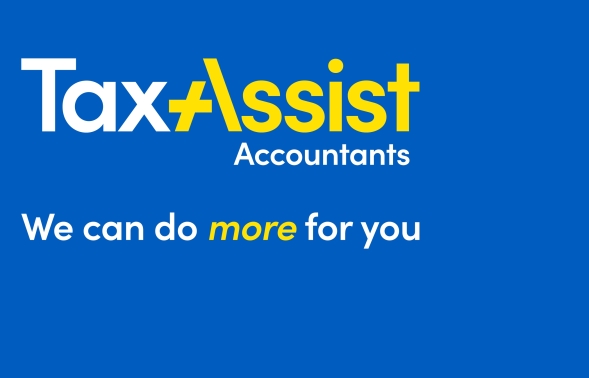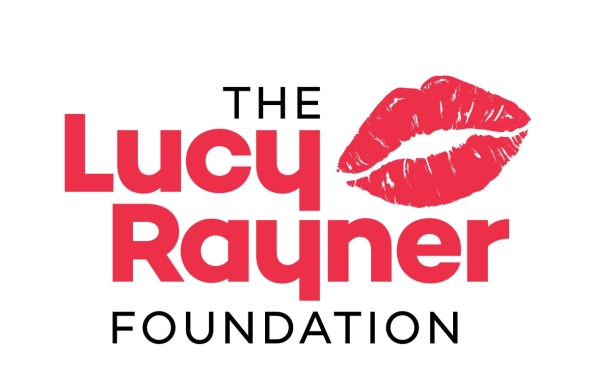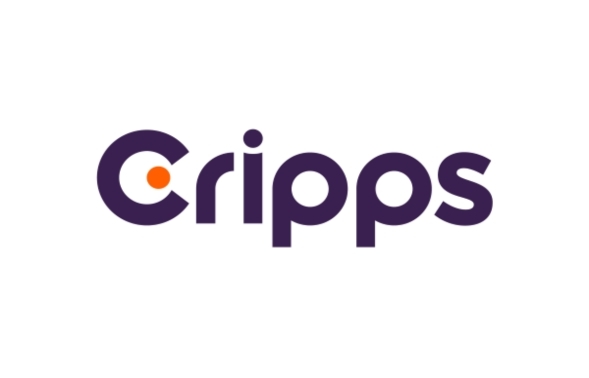2021 Spring Budget Summary
Chancellor Rishi Sunak had a difficult task in this Budget: to indicate how he might balance the Government's books in the future, while still having to pay out huge sums to support the economy.
He said that he would continue to provide 'whatever it takes' to protect businesses and jobs during the present crisis, while being honest about the need to 'fix the public finances' and setting out his plans to build the future economy.
After spending more than £400bn to mitigate the effects of the pandemic, it was inevitable that Mr Sunak would have to raise taxes somewhere - but he was bound by an election promise not to raise the rates of Income Tax, National Insurance Contributions or VAT during the life of the Parliament.
Investment and Tax Webinar
Date: Tuesday 20 April
Time: 12-1pm
Platform: Zoom (registration required)
In this year's Spring Budget, there were a number of measures announced that may have an impact on your future financial position. Managing your affairs in a complex and evolving tax system is a challenge that needs sound financial planning.
Our webinar will provide an overview of the current financial landscape, how the changes will affect you and help you to plan ahead for the next tax year and beyond.
Budget 2021: Recovery Loan Scheme
In his Spring Budget, the Chancellor detailed his plan for recovery, growth and investment.
With this, the Chancellor set out plans to provide the stimulus for businesses to rebuild, following a year of reduced activity, and invest for the future.
Key to the future of the economy is the reopening of businesses, as well as the rebuilding of trading activity. This follows a year of reduced revenue for the vast majority of SMEs. The recovery clearly required a new funding package to drive the process.
Therefore the news that the existing schemes (CBILS and BBLS) are being replaced by the Recovery Loan Scheme was welcomed by many.
Find out more about the Loan Scheme
The new super-deduction tax scheme explained
At the Spring Budget 2021 it was announced that a new temporary first-year allowance, the 'super-deduction', was being introduced into the corporation tax regime.
The super-deduction is available to most companies. However, unincorporated businesses, such as sole traders and partnerships, will not be eligible for the relief. There doesn't appear to be any restrictions to prevent larger companies or groups from accessing the relief.
Companies will be able to claim a super-deduction against taxable profits for the cost of new plant and machinery purchased between 1 April 2021 and 31 March 2023.
Read more on the super-deduction
Budget 2021: COVID support measures
The Chancellor began the Spring Budget by setting out further measures to provide support for businesses and individuals suffering from the financial effects of the pandemic.
The monetary amount of these items, as set out in the Budget forecasts, is far greater than the impact of most tax announcements.
Measures to mitigate the impact of Coronavirus include:
- Coronavirus Job Retention Scheme (CJRS)
- Statutory Sick Pay (SSP)
- Self-Employed Income Support Scheme (SEISS)
- Benefits
- Loans and grants
- Business rates
Read about the support measures
Coronavirus Job Retention Scheme: what you need to know
The Chancellor announced in the Spring Budget that the Coronavirus Job Retention Scheme (CJRS) has been extended to 30 September 2021.
Under the CJRS, all UK employers with a PAYE scheme can access support to continue paying part of their employees' salary for those who have been asked to stop working, but who are being kept on the payroll, otherwise described as 'furloughed workers'.
Employers can furlough (wholly or partly) their staff and reclaim a percentage of their usual pay for hours they did not work in the pay period. This is currently 80%, up to a £2,500/month cap, but is due to be reduced from 1 July.
Budget 2021: Freeports
Freeports usher in a new dawn for the UK to regenerate as a global exporting power.
A welcome announcement in the Budget was to approve eight new Freeports in England in regeneration regions. Although Freeports will benefit the whole of the UK, businesses in these areas will particularly gain from more generous tax reliefs, simplified customs procedures and wider government support, bringing with it investment, trade and jobs.
Freeports are an approved port (air or sea) where normal tax and customs rules do not apply. On receipt at a freeport, imports can enter with simplified customs documentation and without paying customs tariffs.
Making Tax Digital: 'Digital links' compulsory from 1 April 2021
Since the introduction of Making Tax Digital (MTD) on 1 April 2019, HMRC have taken a 'soft-landing' approach to the 'digital links' part of the legislation.
From April 2021, the soft-landing period will cease and these digital links will be a mandatory requirement of the MTD legislation for all businesses currently enrolled (or required to be enrolled) for Making Tax Digital.
A digital link is a transfer or exchange of data which must be made electronically between software programs; in other words, a digital audit trail starting from the invoice being posted onto the accounting system through to the final figures on your VAT return. Each piece of software must be digitally linked to other pieces of software using an acceptable digital link.
Tax Investigation Service 2021/22
Earlier this year, you may have received a letter asking you to subscribe to our Tax Investigation Service (TIS).
In recent years we have noticed a more aggressive attitude from HMRC around tax investigations and they are already investigating CJRS/furlough claims made by our clients.
We strongly recommend this Service to all our clients.
We run the Tax Investigation Service to help protect clients against the professional costs involved in a tax investigation or enquiry. If you do not take out the Tax Investigation Service and are subject to an HMRC enquiry, the costs of tax enquiries are not included in our normal annual fees. Unfortunately clients who do not join the Service have to meet the full cost of any work we may be required to undertake.
The Service starts on 1 April 2021 and is paid annually in advance.
METALL Webinar: The Manufacturing Outlook
Date: Thursday 22 April
Time: 13.00-14.30
Platform: Zoom (registration required)
Following an extremely tumultuous year, join the next METALL panel session where we look at the state of the sector, and the outlook for manufacturing in 2021 and beyond.
Topics covered:
- State of the sector: We'll hear from Chris Beck, Editor at Manufacturing Management, who will provide an overview of how the sector looks today, and his thoughts on how things may change over the next 6-12 months.
- View from the frontline: Listen to Kathy Caton from Brighton Gin and Alan Edmonds from SI Protech as they discuss how they've coped and adapted to COVID and Brexit, and what the future holds for them.
- Ask your questions: The panel will also include experts from MHA Carpenter Box, DMH Stallard and Coast to Capital, to answer any questions you have around contracts, trading, funding or any other topical issues for the sector.
Register for the METALL Webinar
Guidance on the transfer pricing implications of the COVID-19 pandemic
The Organisation for Economic Co-operation and Development (OECD) has released a much-awaited guidance report on the transfer pricing implications of COVID-19.
The OECD report recommends the reliance of tax administrators and multinational enterprises on the use of existing arm's length principles and the OECD's Transfer Pricing Guidelines which were issued in 2017.
The majority of practical challenges that the OECD believes businesses are likely to encounter from COVID-19 disruptions include:
- The need for maintaining steady cash-flow positions
- Severe disruptions to the supply chain including curtailment of operations in many instances; and,
- New measures that businesses have had to put in place for business continuity (like working from home, where this is a feasible option).
Important changes to the VAT Mini One Stop Shop ("MOSS")
Where a business supplies digital services (media, apps, online books, etc) to consumers in EU countries, it is required to account for local country VAT based on where the consumer is located.
It would therefore be necessary for a business to register in each Member State where digital sales to consumers arise. To simplify this process and avoid large compliance costs, a company can register for the Mini One Stop Shop scheme (MOSS) instead.
However, MOSS is an EU scheme and therefore as the UK has left the EU, MOSS registrations for services will no longer be available in the UK. UK service providers selling to EU consumers must register in one of the EU countries to continue using MOSS under the Non-Union scheme.
Important changes to the Agriculture Flat Rate Scheme
In the detail of the 2020 budget there was a note to say that there would be new entry and exit rules introduced for the Agricultural Flat Rate Scheme ("AFRS").
This change was not particularly well publicised and as such had gone unnoticed by many. In the limited information given by the government, they have stated that changes are being made to the scheme following an informal consultation with businesses and their representatives in 2019.
As of 1 January 2021 new rules apply to align the AFRS with the Flat Rate Scheme. In order to join the AFRS, turnover from 'farming activities' must be less than £150,000 per annum. Any business already in the AFRS must leave the scheme if turnover from farming activities exceeds £230,000 per annum. This limit is assessed on each anniversary from joining the scheme.
The Corporation Tax treatment of Coronavirus Support Payments
HMRC have confirmed the treatment of Covid support payments for Charities and Community Amateur Sports Clubs (CASCs).
Charities are given a statutory exemption from Corporation Tax on the profits of small-scale trading. The annual turnover limit is currently:
- £8,000; or
- If the charity's total income is greater than £8,000, 25% of its total incoming resources up to a maximum of £80,000.
HMRC have updated their guidance to confirm that receipts from the Coronavirus Job Retention Scheme payments will not count towards the small trading exemption threshold.
Read more on the tax treatment of Covid payments
International Women's Day 2021
Every year on 8th March, International Women's Day is globally celebrated and recognised to honour the social, economic, political and cultural achievements of women around the world.
The first IWD was held in 1911 and marked the call to action in equality for women. Today the event belongs to women everywhere.
The theme of IWD this year is Choose to Challenge. A challenged world is an alert world and from challenge comes change. In honour of this, we interviewed our two female Partners, Rachel Pearce and Sarah Fitzgerald, to find out more about them, including what they're most proud of and their top stress buster! We also held a lunchtime networking session for women across the firm to discuss International Women's Day, and re-connect after months of remote working.
MHA Carpenter Box Financial Advisers news update
Read the March newsletter!
March has arrived and cautious optimism is the order of the month. The vaccination programme continues to prove successful, and a promising exit route to Covid restrictions has been laid out. For individuals and industry alike, the possibility of a return to relative 'normality' seems more tangible than at any point in the last 12 months.
This newsletter covers:
- Recent financial movements within the UK, including industry updates and the state of the economy
- European news
- A global overview: the US, Far East and Emerging Markets
Events:
- Investment and Tax Webinar - 20 April
- METALL Webinar Panel - 22 April
Resources:
- Year End Tax Planning Guide 2020/21
- MHA Real Estate Matters - February 2021
- Not for Profit Update - March 2021
- IR35 Fact Sheet
- MHA Agriculture & Rural Business Newsletter - Issue 1
- Financial Update March newsletter
- Business Support Guide: Winter 2021
- Brexit Deal: What we know
- Academy Advisor - Winter 2020/21
- The Momentum of Electric Vehicles
- Tax Rates 2020-21
For a full listing of our resources and information sheets, visit our resources page on the MHA Carpenter Box website.
01 Apr 2021
- New National Living and Minimum Wage rates apply
- Deadline to set up a Self-Assessment self-serve Time to Pay arrangement online to avoid fines for late payment of tax
- Extended apprenticeship scheme launches, offering employers payments of £3,000 for each new apprentice they hire
05 Apr 2021
- Last day a usual Companies House filing deadline can be extended for a further three months
- The last day that tax refunds can be claimed in respect of tax overpaid for the tax year ending 5 April 2017
06 Apr 2021
- The 2021/22 tax year begins
- IR35 comes into force in the private sector
- New Recovery Loan Scheme launches
07 Apr 2021
- VAT returns and payments due for Accounting Quarter period ending 28 February
14 Apr 2021
- Last day to make CJRS claims for March
19 Apr 2021
- Deadline for final RTI submission of the year
22 Apr 2021
- Quarterly payment PAYE, Tax and NIC for the period ended 5 April 2021
- Deadline for electronic remittance of PAYE, NICs and CIS to HMRC
28 Apr 2021
- Last date to amend a CJRS claim for March where it has been underclaimed.
30 Apr 2021
- Deadline for filing of accounts with Companies House for accounting periods ended 30 April 2020 and 31 July 2020




































